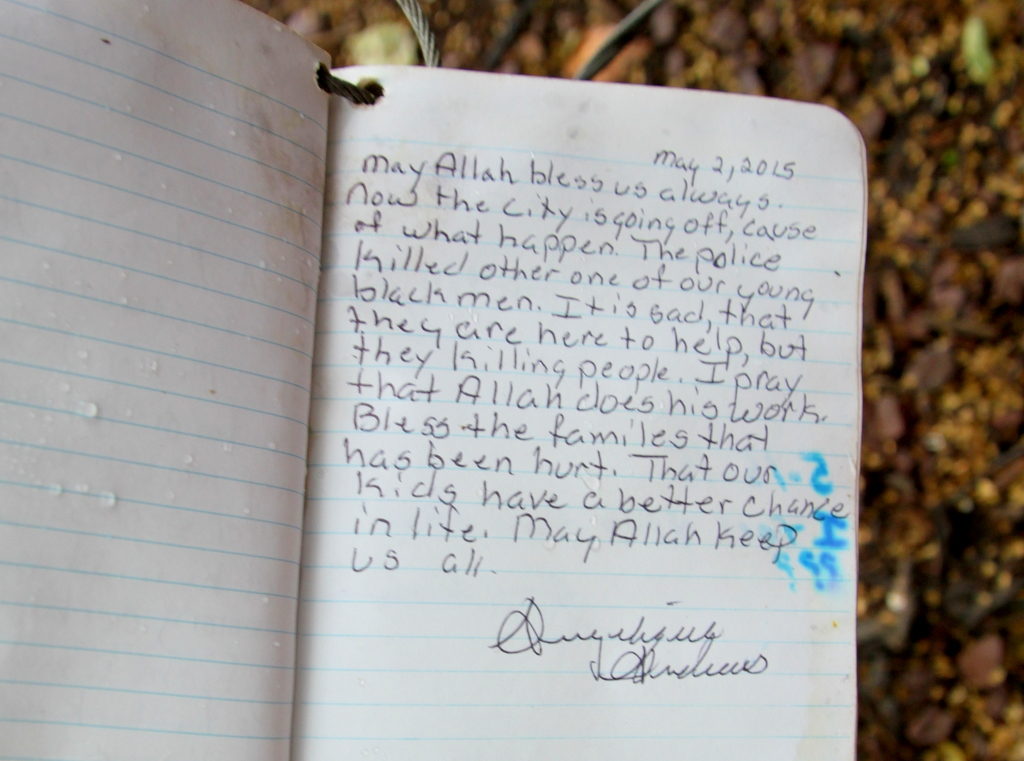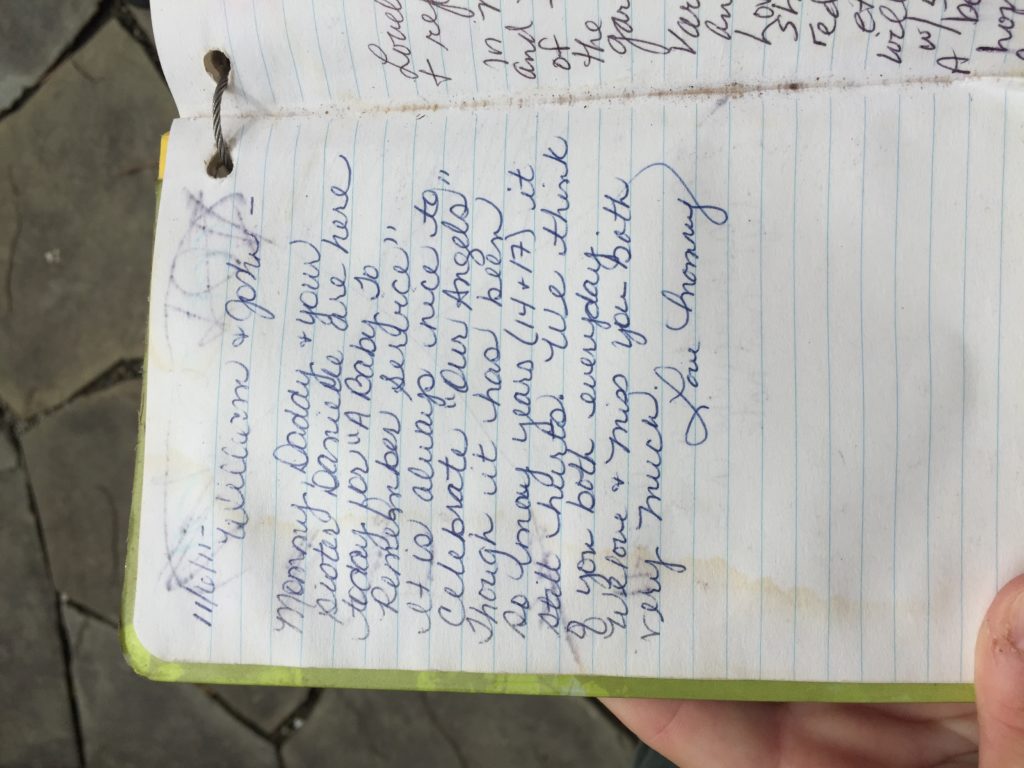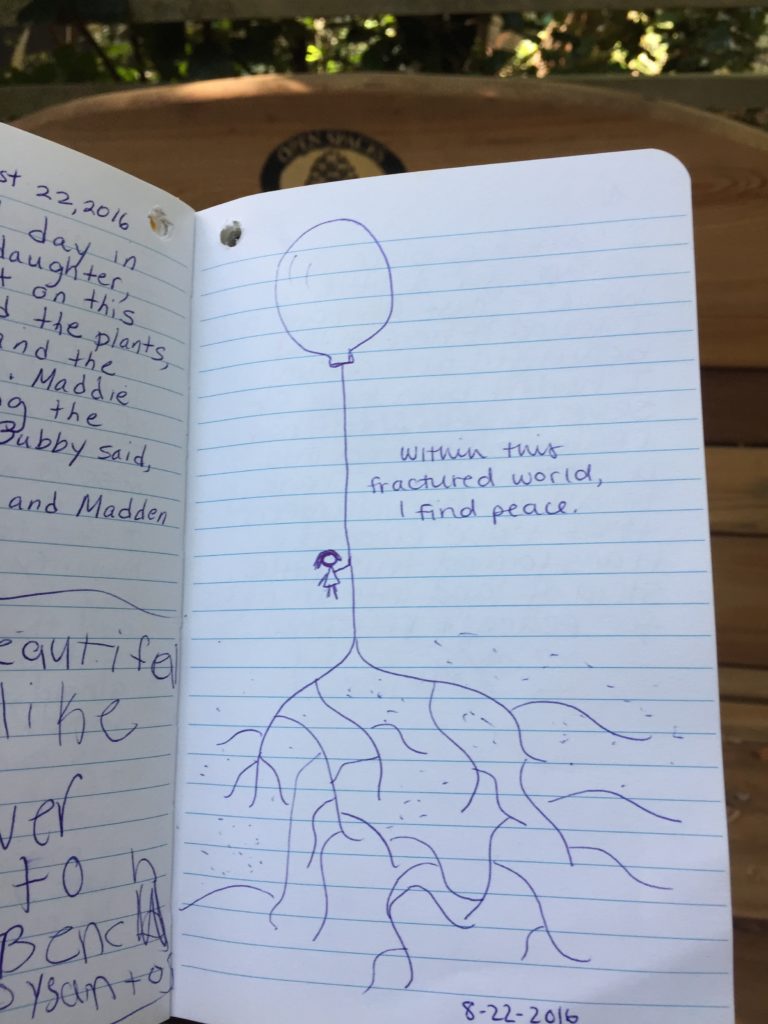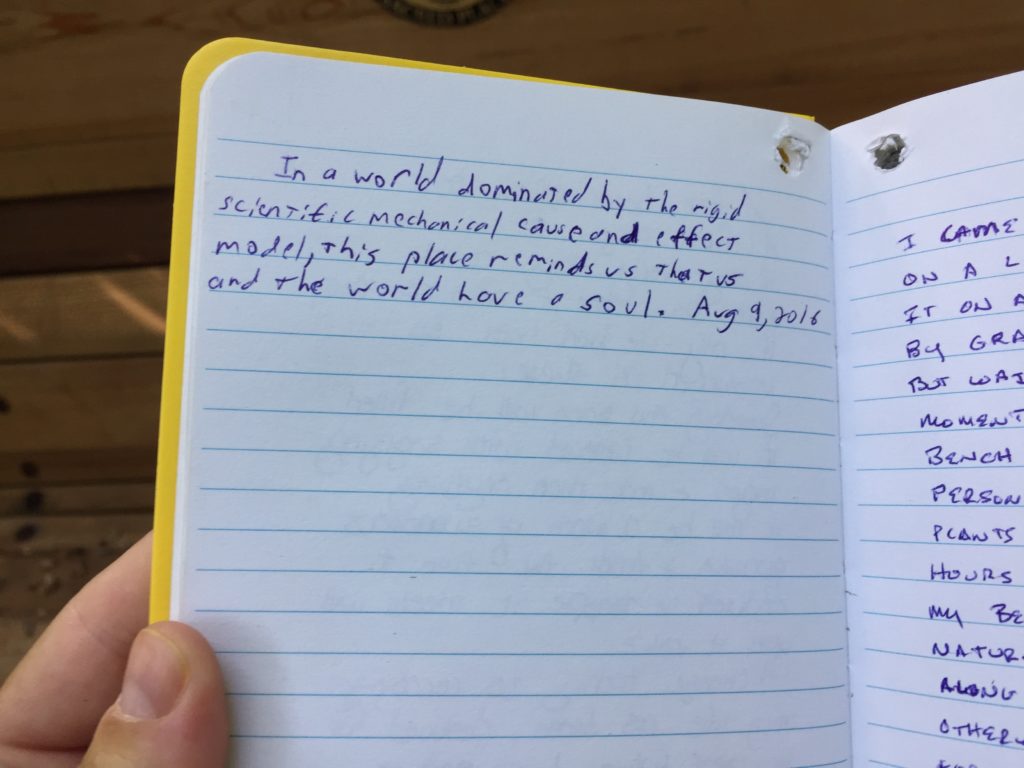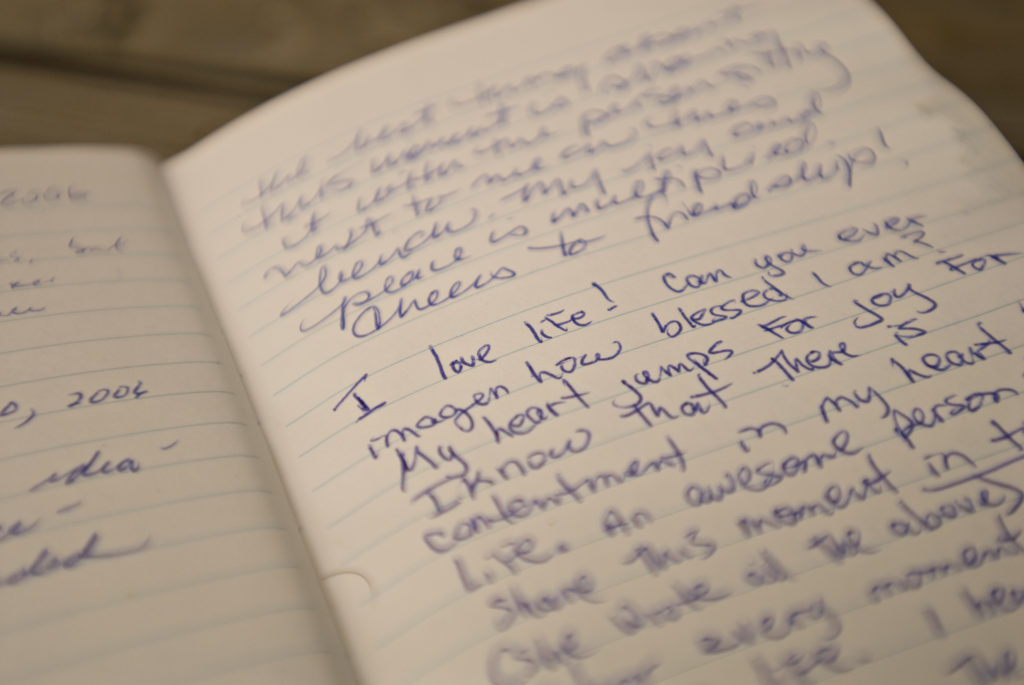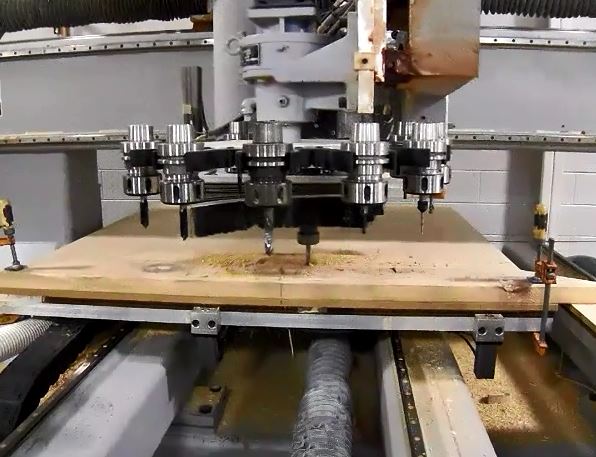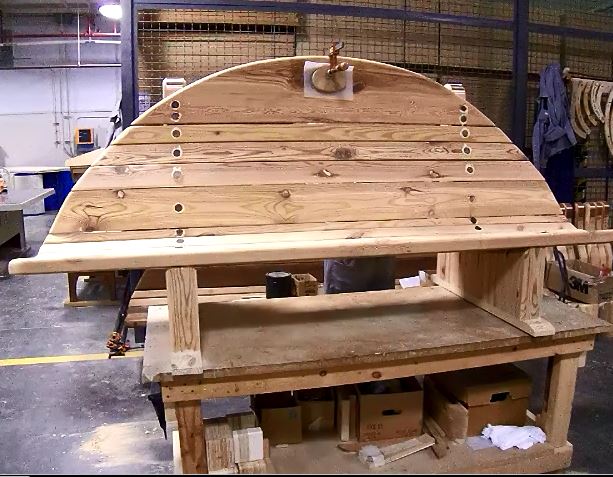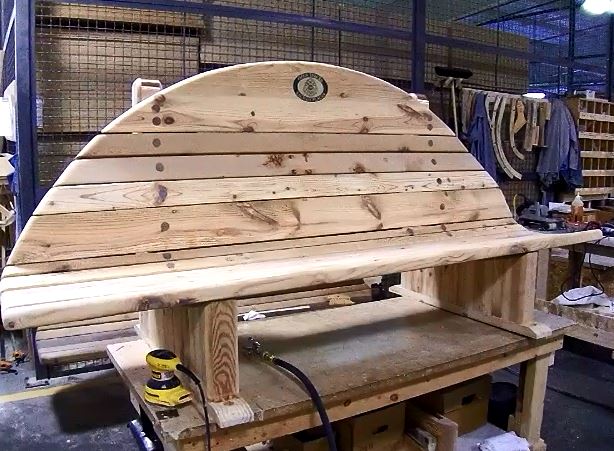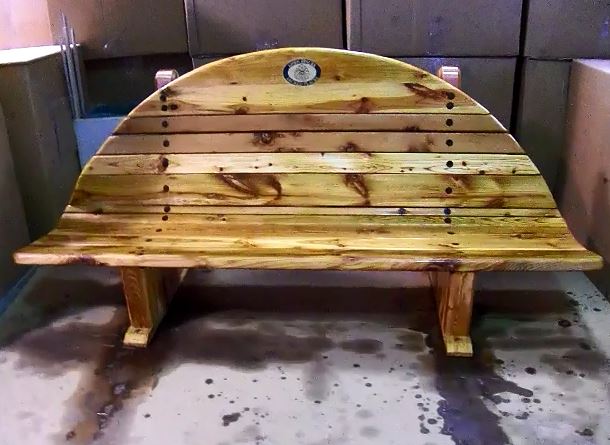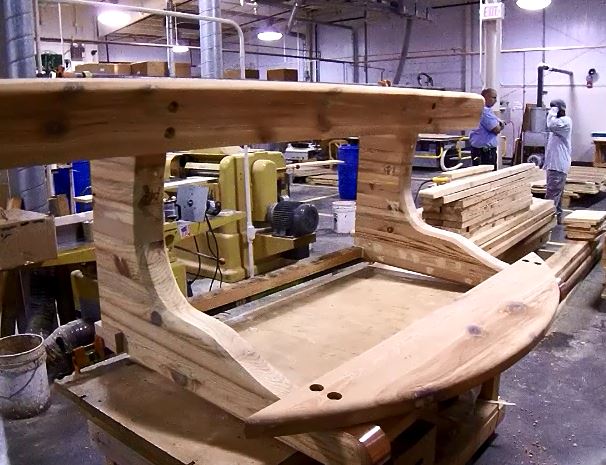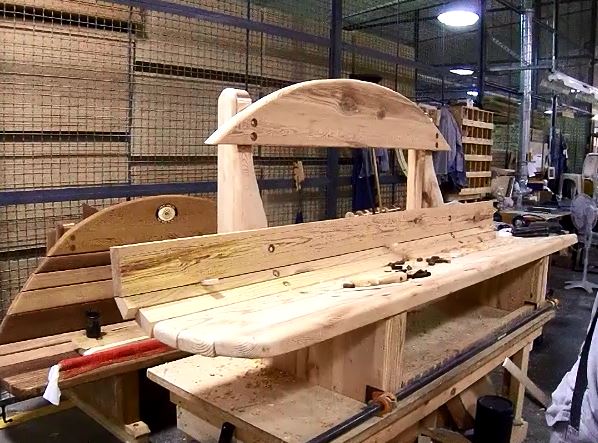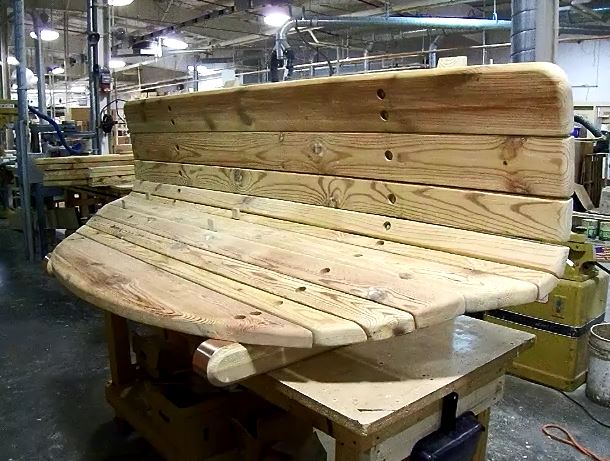In over 130 communities across the country, there reside small pockets of nature, open to anyone. These are our Sacred Places. Whether tucked in distressed urban neighborhoods, public housing, hospitals or prisons — there are a few distinctive elements that tie Sacred Places to each other.
One of them is a bench. But not just any bench, one designed with intent.
Originally made from salvaged wood from long-forgotten pickle barrels, its very materials have soul, stories and character. The design invites anyone to enjoy a comfortable, welcoming place to sit, pause and reflect in nature. The soft lines of its curved back offer a graceful visual interest—a nod to its barrel-past. A built-in compartment houses a waterproof journal where anyone is invited to share thoughts; adding to a growing pool of thousands of journal entries from Nature Sacred benches all across the country. Every element of this bench is designed with the visitor in mind, working to welcome, offer solace and reflection.
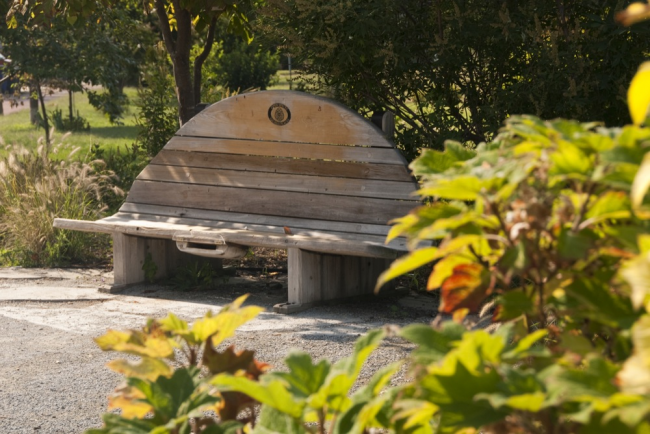
A pickle. Literally and figuratively.
Over time, the pickle barrel wood supply grew scarce. We looked to Baltimore—a neighboring city and home of a network of over 25 Sacred Places—to find a new solution.
Securing the wood is only one part of this equation. There’s the assembly, which requires a thoughtful kind of craftsmanship, and the annual maintenance to preserve the wood through seasons and battering elements.
Certainly, there are easier bench solutions to be found—of a weather-resistant, mass-produced variety. But would a less thoughtfully-designed bench offer our communities the same kind of welcome? Would it embrace the throngs of visitors seeking respite in the same ways? The journal entries—tens of thousands of them—stand as testament that this bench means something to its communities. Something potent, actually.
A solution! A sustainable, socially-good, salvaged one.
Like many cities today, Baltimore is faced with the challenge of abandoned homes—homes built during the 19th and 20th centuries, when waves of immigrants arrived, eager to find work and build community in a prosperous country. Today, over sixteen thousand of these homes are now vacant in Baltimore, often in distressed communities, only exacerbating the challenges already facing those neighborhoods.
Brick + Board is a nonprofit committed to salvaging the bones of old homes by “harvesting, preserving, and preparing these materials for their next hundred years of life”, per their website — a much smarter, sustainable alternative to landfill.
Moreover, the organization works to boost employment in the city by offering skill-training and jobs to people—many of which are looking for a second chance in life. It’s about access, really: community access to reclaimed materials, to jobs, to hope. We felt a keen alignment instantly and began the discussions to secure their reclaimed wood for our benches.
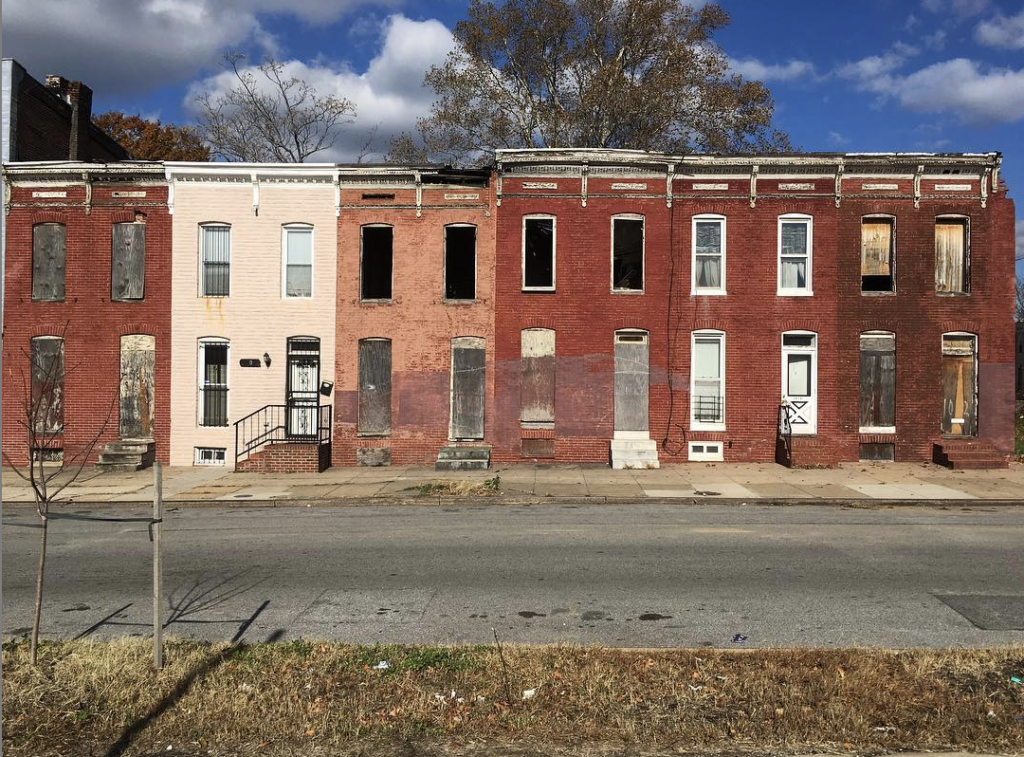
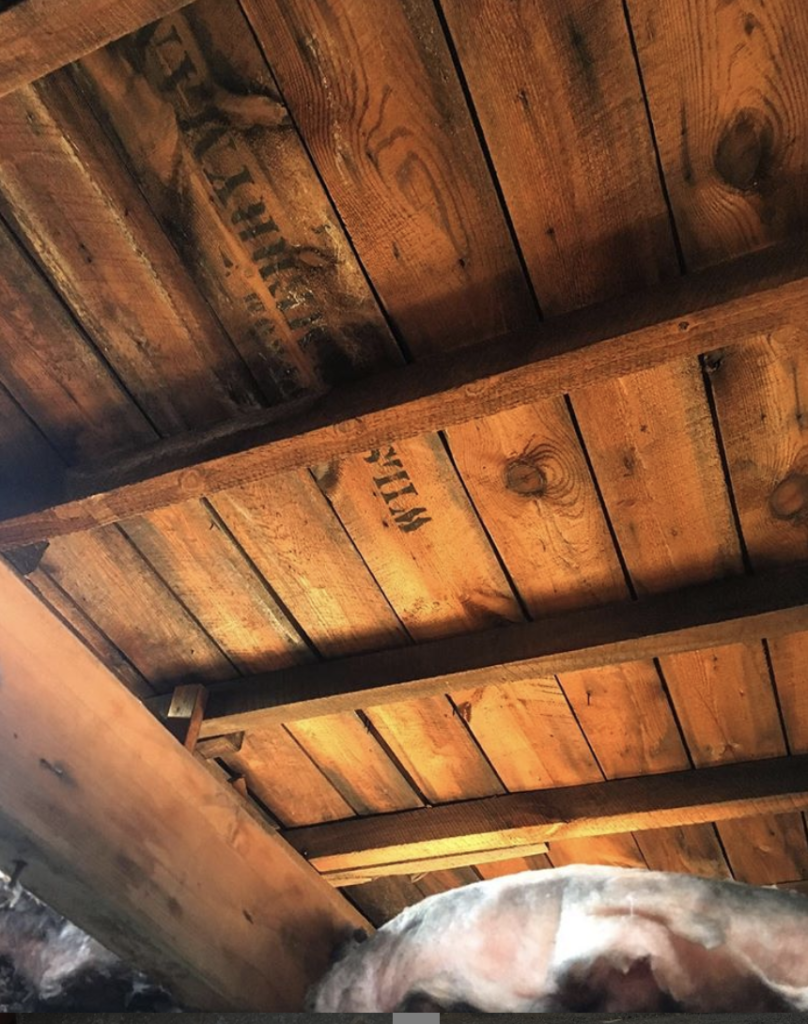
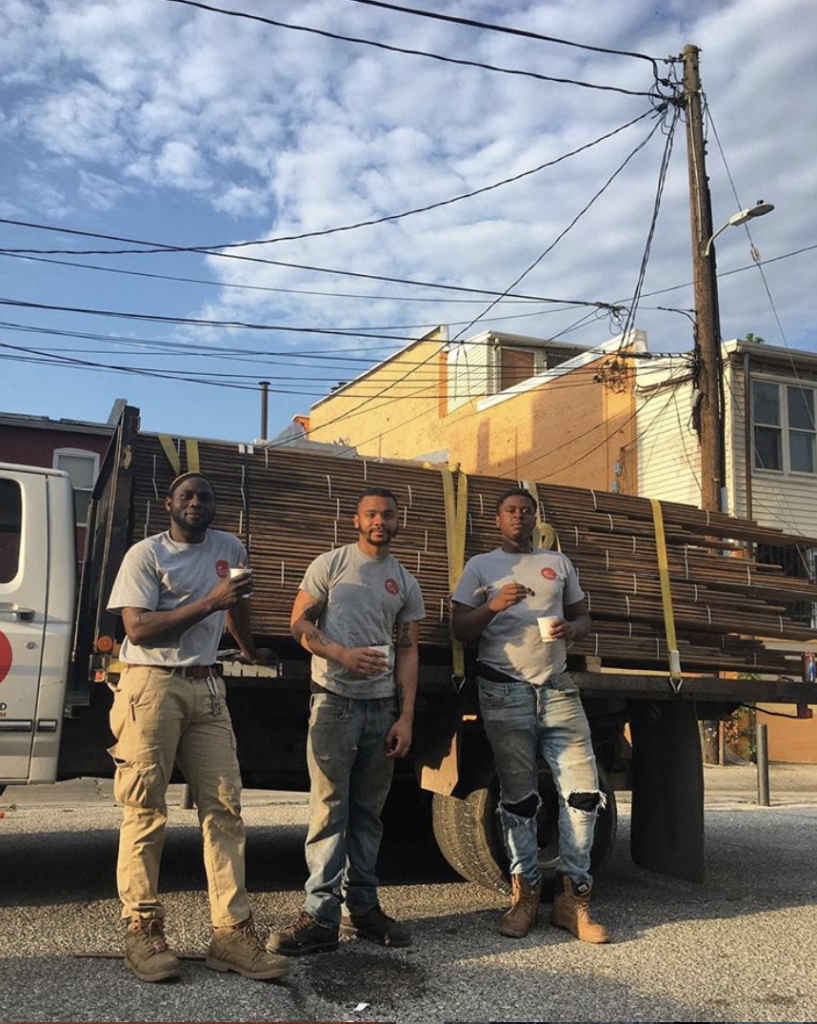
For our benches, Brick + Board suggests a yellow pine—a sturdy, durable wood rich with character that often served as beams for the Baltimore houses built in the 19th & 20th centuries.
“This wood tells stories of Baltimore’s last 200 years—eras of industry and promise; of unique cultures coming together here in our city,” says Max Pollock, Director of Brick + Board, “What’s more, the trees were harvested as mature pines from South Carolina, brought up to Maryland after the Civil War. It’s remarkable to think about all that this wood has seen.”
With our wood supply partnership mobilized in the best way imaginable—we looked on to the carpentry and assembly.
The build: a labor of love.
Outside of the city, the Western Correctional Institution serves 1700 men who are incarcerated from all over Maryland. With a focus on mental and physical wellbeing, the institution integrated a Sacred Place over a decade ago; empowering the men to interpret the space in ways that would mean something to them. The outcomes are powerful.
Inside WCI resides a woodshop—a means for the men to learn carpentry and gain woodworking skills. George Nolan, who oversees the shop, says that these jobs are coveted—offered to the individuals that possess a true desire to learn, a positive work attitude and a commitment to their craft—and offer one of the highest salaries.
This fit the bill perfectly: we’d look to the men affected by the justice system working to improve their lives to build our custom-benches. Wood from Brick + Board, assembly from WCI.
“Measuring, cutting and building these benches requires hours of of hands-on craftsmanship — and our inmates look forward to the challenge every time. Completing just one of them brings great satisfaction and pride.”
George Nolan, MCE 146 Wood Shop Manager, WCI
The care.
Even the heartiest yellow pine, lovingly prepared and assembled needs an annual tune-up. These benches are open 24/7, outside, and do get battered by the elements.
The League for People with Disabilities in Baltimore is committed to providing people with disabilities the opportunities gain independence through a comprehensive array of services. Through our friend, Firesoul and CEO of the League, David Greenberg, we became aware of great things afoot with their workforce development efforts—and there it was: the solution. The workforce squad from the League are just the capable hands needed to perform these essential tasks. Now we’ve got a mighty crew—self-named “Renew Crew”—on top of treating and maintaining the local benches in the Baltimore area.
“The smiles on their faces upon completion of the job say it all.”
David A Greenberg, CEO, The League for People with Disabilities

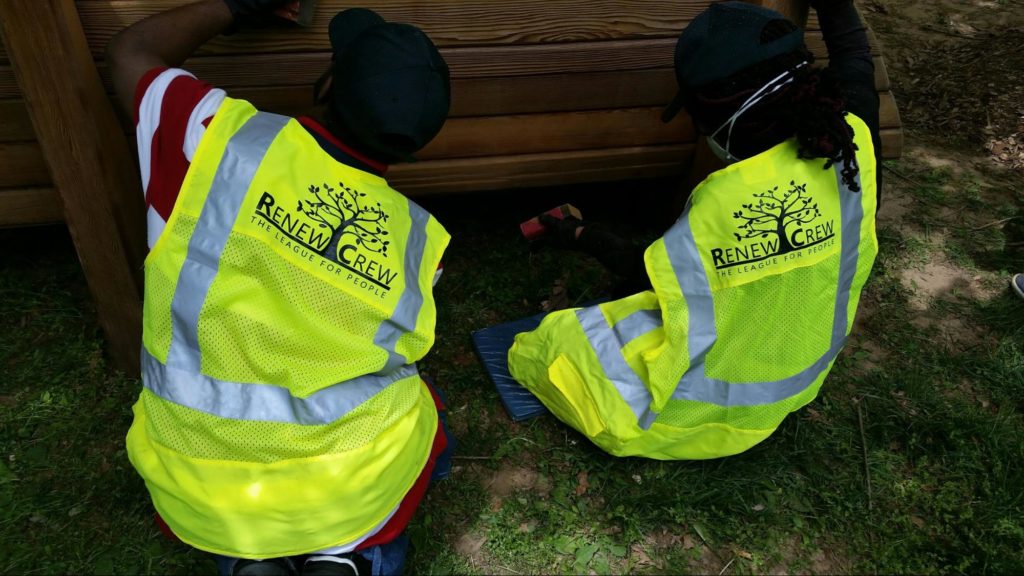
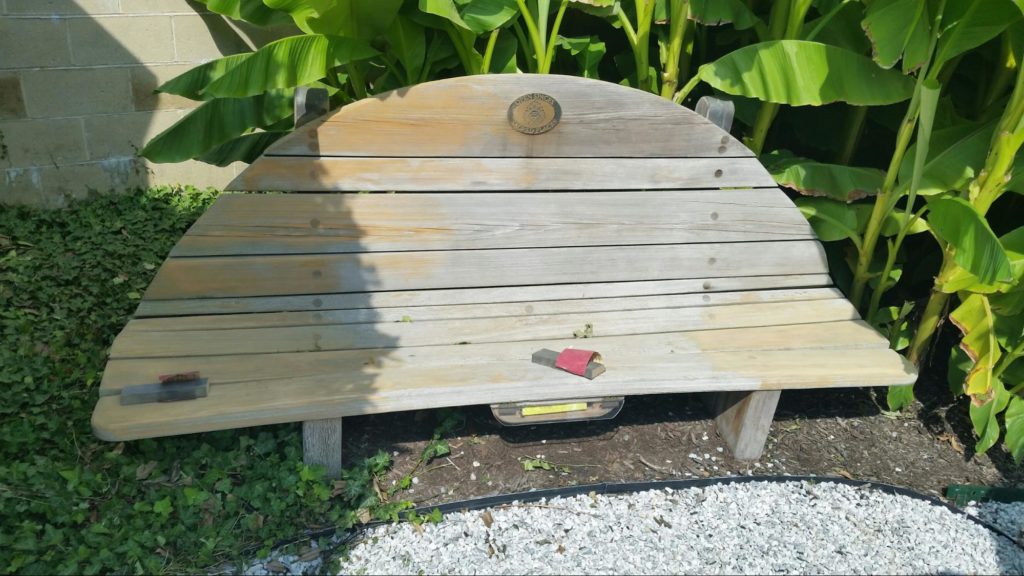
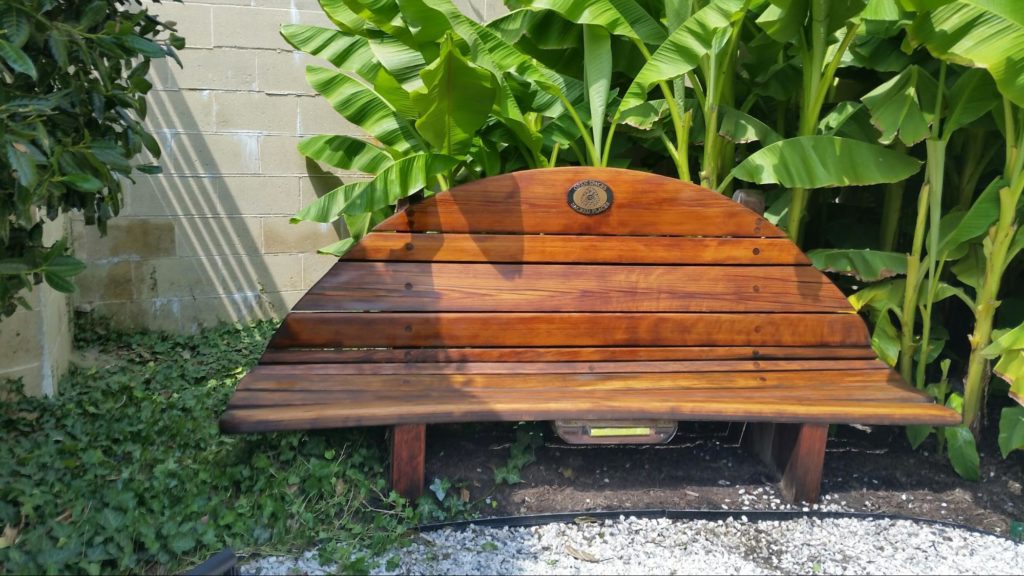
Community knit together for the greater good.
“It’s nothing short of remarkable to see community collaboration like this—there are positive outcomes at every turn. People offering their skill sets for the greater good of the community—to play a role, together, in the creation of something meaningful to people in need.”
–Erin Robertson, Executive Director, Nature Sacred
Local, salvaged wood procured by skilled laborers; custom-carpentry from regional inmates; a crew of workers from the League of People with Disabilities — all these many hands come together to make the community a better, stronger place. To help people encountering daily duress with little or no access to nature; people who deserve a special place set aside in nature—just for them—to sit, to catch their breath and find renewal.
